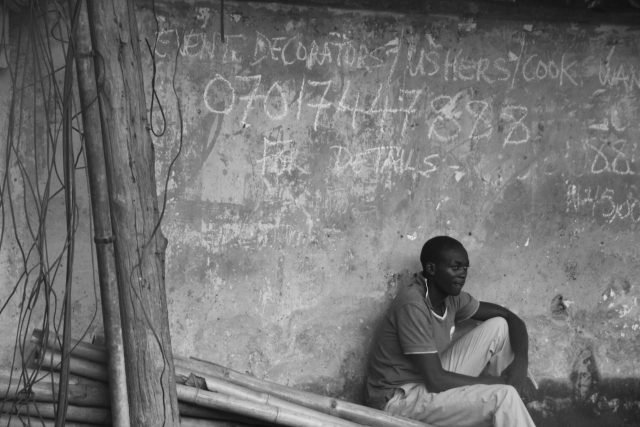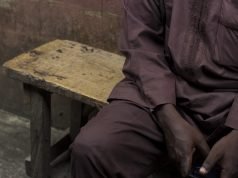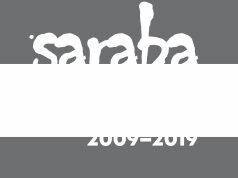Trying to Understand the Increasingly Forgotten Malagasy Art of Waiting and Making Wait
Imagine a group of Malagasy. Let’s say that they agree to meet and talk about some important stuff tomorrow morning at 10:00. In all likelihood, people will start arriving at around 10:30. The bulk of the group will show up at 11:00. Maybe later. The meeting will probably start at 11:15. In Madagascar, this is totally acceptable and perfectly within the social norms.
It is part of the social contract. Nobody will get mad for waiting. Nobody will need to apologize for making the others wait. Waiting and making wait has truly become an art for the Malagasy. A beautiful art form that is unfortunately being gradually threatened by globalization—the increasingly lost and forgotten art of “fotoan-gasy” (Malagasy time).
As far as I can remember, punctuality has always appeared to be a foreign concept in Madagascar. Some observers have tried to explain this by arguing that Malagasy put little or no value on time. Others argue that Malagasy people are often too busy enjoying life to feel the need to hurry. They would then assert that the expression “time is money” is purely a Western industrialized construct and does not necessarily apply to the Malagasy society.
I tend to disagree with that type of assessment and would like to offer an alternative explanation that is more rational and plausible. I believe that the Malagasy do, in fact, put a lot of value on their time. We understand the concept of opportunity cost as well as any other people on earth. We are keenly aware that time is a scarce resource with limited supply, not to be squandered. The Malagasy would often say “Aza mandany fotoana” (Do not waste time) or “Tsy manam-potoana aho” (I do not have time).
As one of the elements that hold the Malagasy society together, the art of “fotoan-gasy” is one way for us to get the most out of that scarce resource. Individually, we are convinced that waiting around is not the most efficient use of our time. The opportunity cost of waiting is high. So the rational course of action for the individual is to minimize waiting time (i.e., do not come early) or, even better, eliminate waiting time altogether (i.e., come a bit late).
It does not stop there. The other members of the group, anticipating that one or two members may be coming “a bit” late, will also plan their arrival time in the most rational way. They will strategically minimize their waiting time (i.e., do not come on time) or, even better, eliminate waiting time altogether (i.e., come a little bit later than a bit late).
And thus starts the awesome strategic game of “fotoan-gasy.” Everyone will plan to arrive a little bit later than the others. So, everyone will end up coming late to the 10:00 meeting. But not too late. There is an art to mastering the “fotoan-gasy”: you do not want to arrive too early (you do not want to waste your time waiting), but you do not want to arrive too late either (you do not want to make the others wait for too long). In a very Malagasy fashion, you do not want to be either the first or the last to arrive. Determining the optimal arrival time is more than an art form, it actually is a science that requires years of practice!
Under the science of the “fotoan-gasy,” a perfectly rational decision, at the individual level, produces an inefficient outcome, at the group or community level. A textbook example of “coordination failure.” In Madagascar, this inefficient outcome is socially accepted and even expected by everyone. More importantly, it serves an important social role: It helps strengthen the bond on friendship between the group members. Only true friends are comfortable enough to make their friends wait. And only true friends are willing to wait for their friends without complaining. Someone that always comes on time would, indeed, make others feel uncomfortable and intimidated.
Thus, instead of coming at the agreed time, 10:00 in the morning, the Malagasy would go and do something else more valuable than wasting their time waiting around. The waiting game will go on until the first guy, a brave soul, decides to bite the bullet, show up, and wait for the others. He will not complain. He will not get mad. He will patiently and stoically wait for the others. He is a true friend. And when everybody has finally arrived at 11:15 and the meeting is about to start, he will simply quip: “Miandry fa Gasy e!” (I am Malagasy, therefore I wait). And collective laughter will ensue. Good times.
Good times, indeed. But at some point, we may have to ask some difficult questions. Is “fotoan-gasy” good for development and pursuit of prosperity? Especially in an increasingly globalized world? Is “fotoan-gasy” going to survive the process of globalization? Personally, I don’t have coherent answers to offer. We will have to wait. Wait. Wait and see.
Featured image by Eloghosa Osunde, from her contribution to the Crime Issue.
































